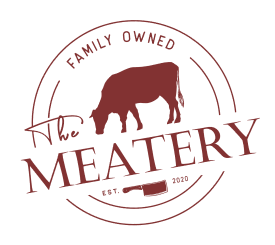The secret behind Iberico pork lies in a unique combination of genetics, diet, and lifestyle that creates what many consider the finest pork in the world. At its core, Iberico pork comes from the Black Iberian pig (also known as pata negra or black hoof), a breed that has evolved over centuries in the western Mediterranean.
The most crucial secret is the pigs' diet, particularly during the montanera season. During this period, Iberico pigs roam freely in the dehesa - a unique ecosystem of oak forests found in Spain and Portugal. Here, they feast primarily on acorns (bellotas), which contribute to the meat's distinctive marbling and nutty flavor profile.
Another key secret is the pigs' genetic predisposition to accumulate intramuscular fat, creating the characteristic marbling that makes Iberico pork so special. This fat is rich in oleic acid - the same healthy fat found in olive oil - making it not just delicious but also healthier than conventional pork.
The lifestyle of these pigs plays a vital role too. Free-range living allows them to exercise naturally, developing muscle tone and flavor while reducing stress. This traditional farming method, combined with the pigs' natural foraging behavior, contributes to the meat's complex taste profile and tender texture.
Iberico Pork And Its Origins
Iberico pork originated in the Iberian Peninsula, specifically in the border regions between Spain and Portugal. The Black Iberian pig has been raised in this region for thousands of years, with evidence of their presence dating back to the Roman period.
These pigs are descendants of the Mediterranean wild boar and have adapted perfectly to the local ecosystem. The traditional breeding area includes several Spanish regions, most notably:
- Extremadura
- Andalusia
- Salamanca
- Western Castile
The production of Iberico pork is strictly regulated by Denominación de Origen (DO) certifications, which ensure authenticity and quality. Different grades exist based on the pigs' diet and breeding conditions:
- Bellota (100% acorn-fed)
- Cebo de Campo (mixed diet with some acorns)
- Cebo (grain-fed)
This heritage breed and its traditional production methods are protected by law to preserve both the quality of the product and the cultural significance of this ancient farming practice.
Does Iberico pork taste different?
Iberico pork offers a distinctly different taste experience compared to conventional pork, characterized by its complex flavor profile and unique texture. The meat presents an intense, nutty flavor with sweet undertones, a direct result of the pigs' acorn-rich diet.
The key taste differences include:
- Rich, complex umami notes
- Subtle nutty undertones from acorn consumption
- Buttery texture due to extensive marbling
- Deep, wine-like complexity in aged products
The fat in Iberico pork literally melts in your mouth, creating a uniquely smooth and luxurious eating experience. This characteristic is due to the high concentration of oleic acid, which gives the fat a lower melting point than that found in regular pork.
When cooked, Iberico pork develops a more intense, deeper color than regular pork, and the meat remains tender even when well-done, though it's often served medium-rare to maximize its natural flavors.
Comparisons To Other Pork Variations
When comparing Iberico pork to other pork varieties, several key differences become apparent. Standard commercial pork, even from heritage breeds, typically can't match the unique characteristics of Iberico pork.
Key differences include:
- Fat content and distribution: Iberico has superior marbling
- Muscle fiber structure: More tender and finer-grained
- Color: Darker, more intensely red meat
- Nutritional profile: Higher in healthy monounsaturated fats
Even compared to other premium pork varieties like Berkshire or Mangalitsa, Iberico stands apart. While these breeds offer excellent quality, they lack the unique combination of genetics, diet, and environment that makes Iberico special.
The closest comparison might be Kurobuta pork from Japan, but even this highly regarded variety differs in fat composition and flavor profile from authentic Iberico.
Sustainability And Farming Practices
Iberico pork production represents one of the most sustainable livestock farming systems in the world. The traditional dehesa system where these pigs are raised is a model of environmental harmony and biodiversity preservation.
Key sustainability aspects include:
- Preservation of ancient oak forests
- Natural pest control through pig foraging
- Minimal environmental impact
- Support for local ecosystems
The farming practices involve strict regulations regarding space per animal, with each pig requiring several acres of dehesa to forage. This low-density farming approach helps maintain soil health and prevents overgrazing.
These traditional methods also support rural economies and preserve cultural heritage, making Iberico pork production a prime example of sustainable agriculture that benefits both the environment and local communities.
Is Iberico the Wagyu of pork?
The comparison between Iberico pork and Wagyu beef is often made, and for good reason. Both represent the pinnacle of their respective meat categories, sharing several key characteristics:
- Exceptional marbling
- Premium pricing
- Strict production standards
- Protected designation of origin
However, while both are premium products, they achieve their status through different means. Wagyu's quality comes primarily from genetics and careful feeding programs, while Iberico's excellence results from a combination of genetics, traditional free-range farming, and natural diet.
Like Wagyu, Iberico pork commands premium prices and is often reserved for special occasions. Both products represent the ultimate expression of their respective meat categories, though each maintains its unique characteristics and production methods.
"While Wagyu is often called the king of beef, Iberico holds an equally prestigious position as the emperor of pork."









